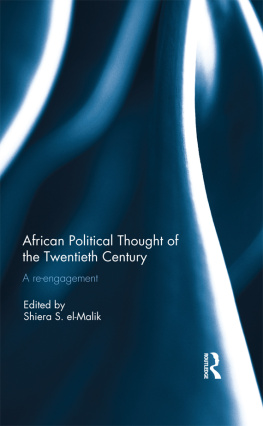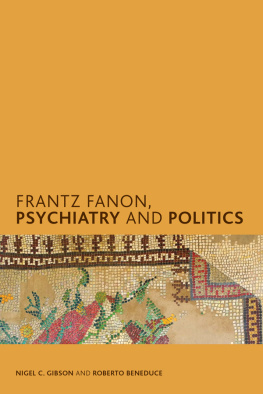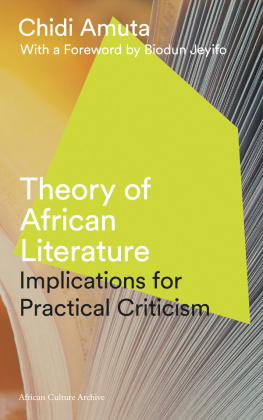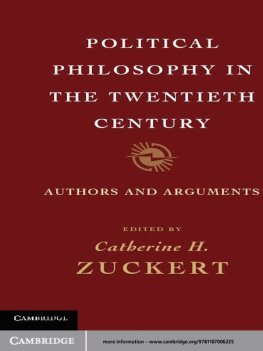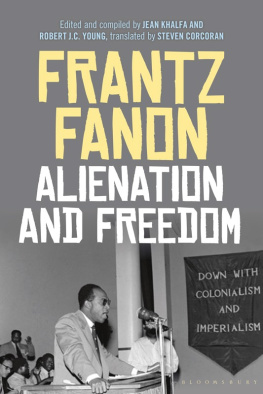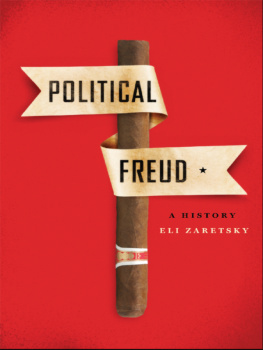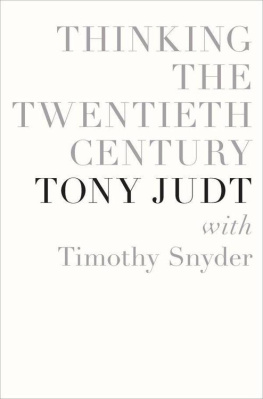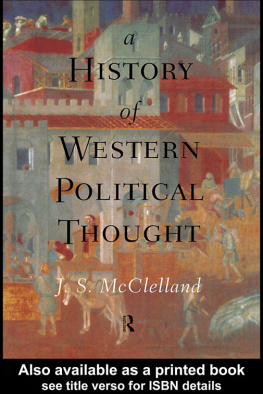African Political Thought of the Twentieth Century
This book focuses on African political thought as it emerged in the context of and contributed to fundamental changes in world order during the twentieth century, and as it continues to speak to the present global condition. The six chapters form a set of close readings of twentieth-century African political theorists insofar as their work forms part of a conversation that Africa had with itself and with the rest of the world regarding freedom, independence, emancipation and statehood, as well as forming part of the larger global conversations within which these theorists can be situated. The essays analyse the ideas and practices of a number of prominent figures including Frantz Fanon, Leopold Senghor, Amlcar Cabral, Agostinho Neto, Julius Nyerere, Gabriel dArboussier and Sembene Ousmane.
This collection is unusual in its breadth, bringing together the analyses of radical thinkers and activists from the Portuguese-, French- and English-speaking regions of Africa. It includes chapters from prominent senior figures in the field, as well as contributions from younger scholars. The editor includes a short introduction which frames the collection and situates its contribution to broader debates and fields of enquiry. This book was originally published as a special issue of African Identities.
Shiera S. el-Malik is an Associate Professor at DePaul University in Chicago, USA. She teaches and writes in the area of colonialism and international political thought. Her work has appeared in Review of International Studies, African Identities, Journal of Contemporary African Thought, Irish Studies in International Affairs and in edited volumes.
African Political Thought of the Twentieth Century
A re-engagement
Edited by
Shiera S. el-Malik
First published 2016
by Routledge
2 Park Square, Milton Park, Abingdon, Oxon, OX14 4RN, UK
and by Routledge
711 Third Avenue, New York, NY 10017, USA
Routledge is an imprint of the Taylor & Francis Group, an informa business
2016 Taylor & Francis
All rights reserved. No part of this book may be reprinted or reproduced or utilised in any form or by any electronic, mechanical, or other means, now known or hereafter invented, including photocopying and recording, or in any information storage or retrieval system, without permission in writing from the publishers.
Trademark notice: Product or corporate names may be trademarks or registered trademarks, and are used only for identification and explanation without intent to infringe.
British Library Cataloguing in Publication Data
A catalogue record for this book is available from the British Library
ISBN 13: 978-1-138-65115-9
Typeset in TimesNewRomanPS
by diacriTech, Chennai
Publishers Note
The publisher accepts responsibility for any inconsistencies that may have arisen during the conversion of this book from journal articles to book chapters, namely the possible inclusion of journal terminology.
Disclaimer
Every effort has been made to contact copyright holders for their permission to reprint material in this book. The publishers would be grateful to hear from any copyright holder who is not here acknowledged and will undertake to rectify any errors or omissions in future editions of this book.
Contents
Shiera S. el-Malik and Branwen Gruffydd Jones
Branwen Gruffydd Jones
Ogenga Otunnu
Sam Okoth Opondo
Shiera S. el-Malik
Isaac Kamola
Siba N. Grovogui
The chapters in this book were originally published in African Identities, volume 13, issue 1 (February 2015). When citing this material, please use the original page numbering for each article, as follows:
Introduction
African political thought of the twentieth century: a reengagement
Shiera S. el-Malik and Branwen Gruffydd Jones
African Identities, volume 13, issue 1 (February 2015) pp. 13
From rupture to revolution: race, culture and the practice of anti-colonial thought
Branwen Gruffydd Jones
African Identities, volume 13, issue 1 (February 2015) pp. 417
Mwalimu Julius Kambarage Nyereres philosophy, contribution, and legacies
Ogenga Otunnu
African Identities, volume 13, issue 1 (February 2015) pp. 1833
Cinema is our night school: appropriation, falsification, and dissensus in the art of Ousmane Sembne
Sam Okoth Opondo
African Identities, volume 13, issue 1 (February 2015) pp. 3448
Interruptive discourses: Lopold Senghor, African Emotion and the poetry of politics
Shiera S. el-Malik
African Identities, volume 13, issue 1 (February 2015) pp. 4961
Steve Biko and a critique of global governance as white liberalism
Isaac Kamola
African Identities, volume 13, issue 1 (February 2015) pp. 6276
Remembering democracy: anticolonial evocations and invocations of a disappearing norm
Siba N. Grovogui
African Identities, volume 13, issue 1 (February 2015) pp. 7791
For any permission-related enquiries please visit: http://www.tandfonline.com/page/help/permissions
Siba N. Grovogui is a Professor of International Relations in the Africana Studies & Research Center at Cornell University, Ithaca, NY, USA. His research focuses on international relations, political theory and Africana studies. He is also a highly regarded expert in post-colonial studies.
Branwen Gruffydd Jones is a Senior Lecturer in International Political Economy, Exams Officer and Chair of Undergraduate Exam Board at Goldsmiths, University of London, UK. Her current research focuses on politics and the post-colonial city in Africa.
Isaac Kamola is an Assistant Professor of Political Science at Trinity College, Hartford, CT, USA. His research examines how the material transformation of postCold War higher education in the United States and Africa informs how the world came to be imagined as global. His scholarly work has appeared in International Political Sociology, British Journal of Politics and International Relations, Journal of Higher Education in Africa, Third World Quarterly, Polygraph and Transitions and in numerous edited volumes.
Shiera S. el-Malik is an Associate Professor at DePaul University, Chicago, IL, USA. She teaches and writes in the area of colonialism and international political thought. Her work has appeared in Review of International Studies, African Identities, Journal of Contemporary African Thought, Irish Studies in International Affairs and in edited volumes.
Sam Okoth Opondo is an Assistant Professor of Political Science at Vassar College, Poughkeepsie, NY, USA. His research focuses on violence, colonialism, ethics and race in Africa. He is the co-editor of the book, The New Violent Cartography: Geo-Analysis after the Aesthetic Turn (Routledge, 2012).
Ogenga Otunnu is an Associate Professor of International Studies and Director of the Graduate Program in Refugee and Forced Migration Studies at DePaul University, Chicago, IL, USA. He is the co-founder of the Center for Refugee and Forced Migration Studies at Northwestern University. He taught refugee and forced migration studies at the summer program at the Centre for Refugee Studies at York University for 15 years. He has published on nationalism in Africa, genocide in Rwanda, genocide in northern Uganda, refugee crises, xenophobia against refugees, conflict resolution, environmental displacement, post-conflict reconstruction of societies and political violence in Africa.

